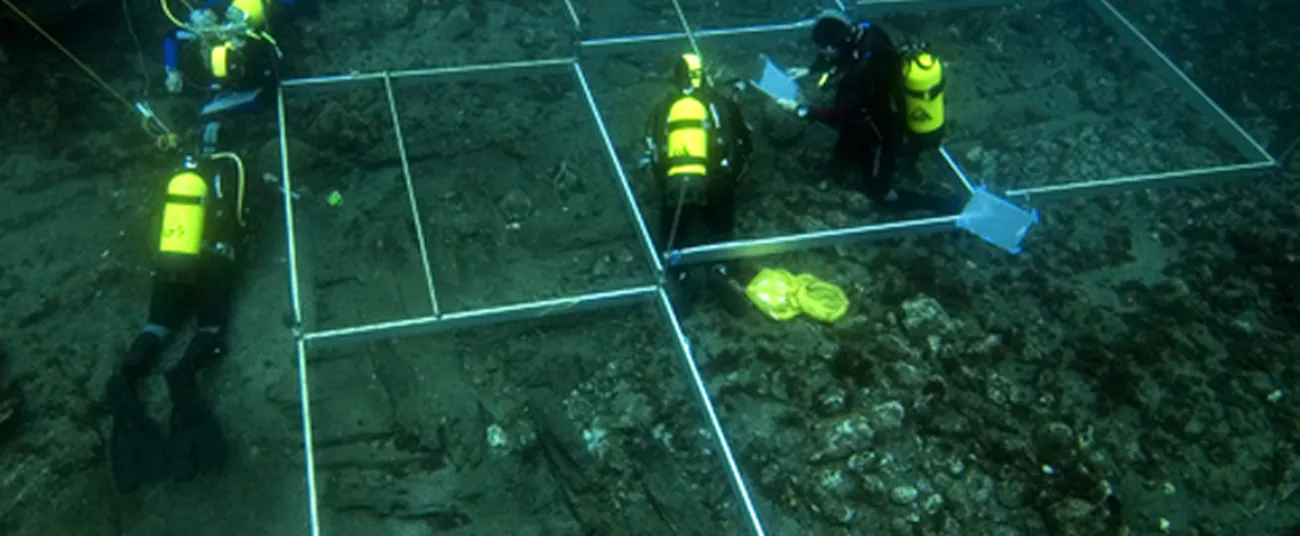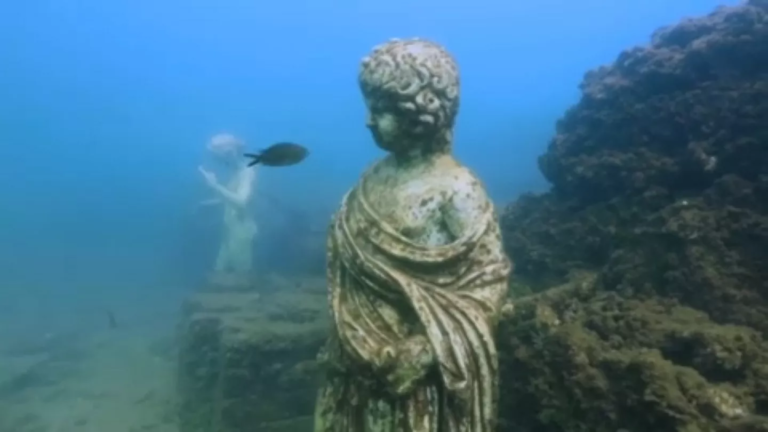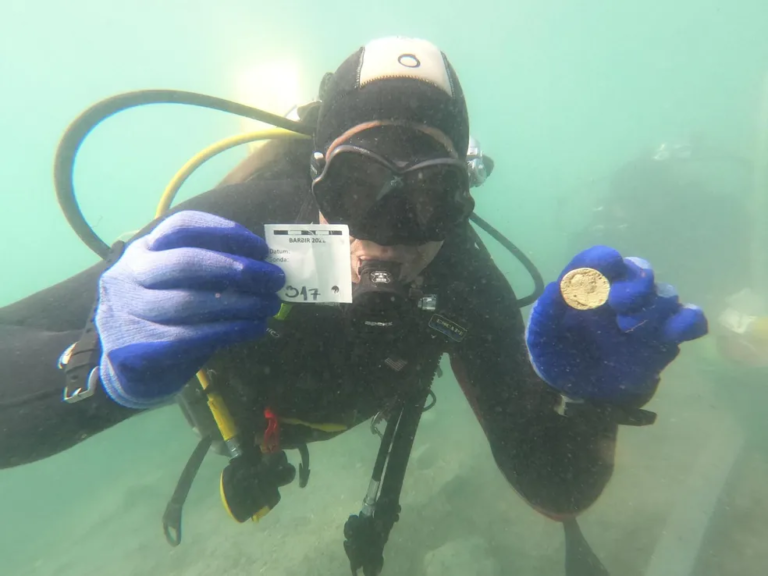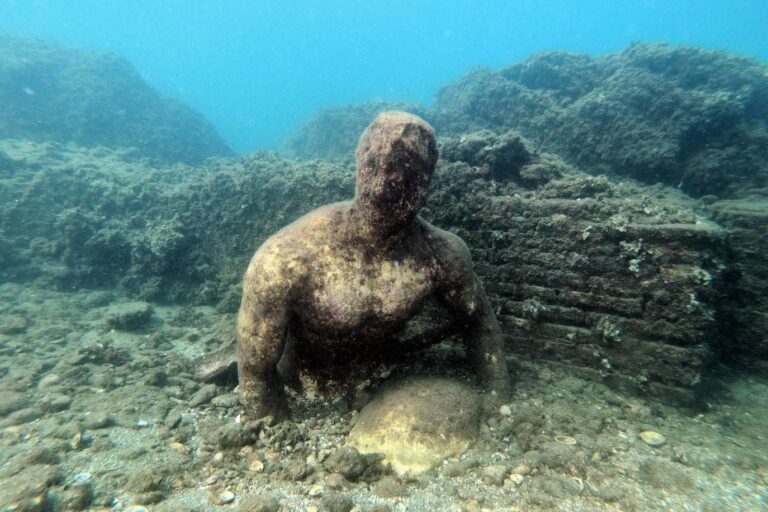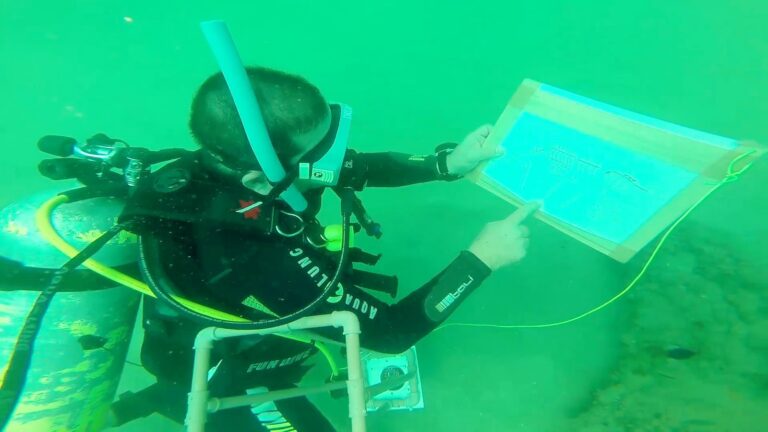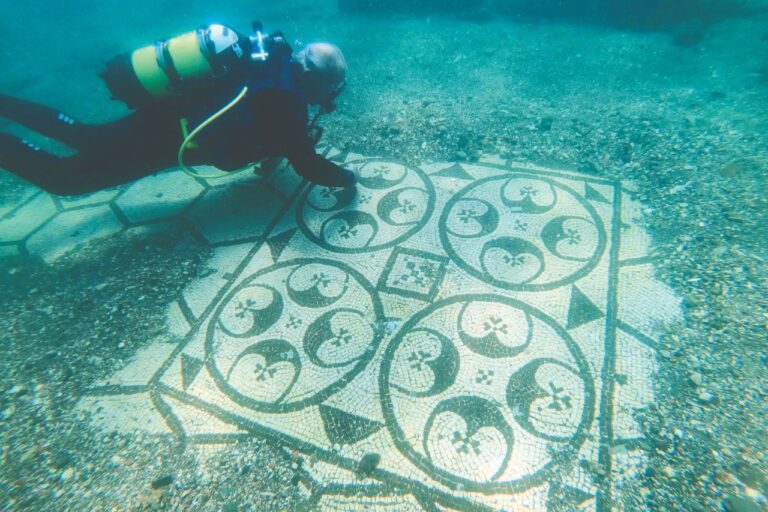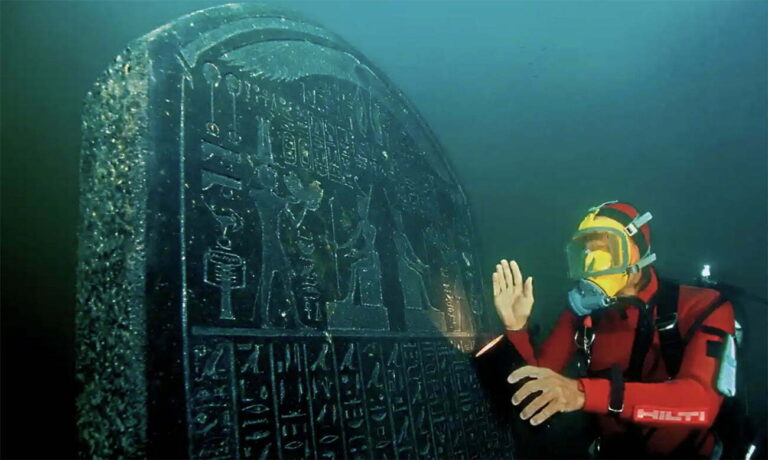Recreational Diving and Archaeology: Becoming an Underwater Explorer
Recreational diving is a thrilling activity that has gained immense popularity among adventure seekers and nature enthusiasts. With its unique blend of exploration and underwater beauty, recreational diving allows individuals to immerse themselves in a world filled with wonders. The allure of diving into the depths of the sea and discovering hidden treasures has captivated the hearts of many. In this blog post, we will delve into the fascinating world of recreational diving and explore how it can lead to becoming an underwater explorer.
Diving enthusiasts are not only drawn to the recreational aspect of this activity but also to the possibility of discovering the remnants of past civilizations. Archaeology, as a discipline, plays a crucial role in uncovering human history through the analysis of material remains. It provides us with a window into the lives of our ancestors and helps us understand the world they lived in. Traditional terrestrial archaeological excavations have long been the primary method of studying our past. However, with the advancement of technology and the development of underwater archaeology, we now have the means to explore the submerged past.
Underwater archaeology opens the door to a whole new dimension of exploration. It allows us to investigate submerged cultural heritage and unlock the secrets hidden beneath the waves. This field of study brings with it unique challenges, such as the need for specialized equipment and techniques to navigate underwater environments. However, advancements in technology, such as diving gear and underwater imaging systems, have made it possible for us to explore and document underwater archaeological sites.
One of the most intriguing aspects of recreational diving combined with archaeological exploration is the opportunity for divers to become citizen scientists. By participating in underwater archaeological research, recreational divers can contribute to the preservation of our cultural heritage. With proper training and certification, divers can assist in surveying archaeological sites, collecting data, and even assisting in the excavation process. This active involvement in archaeological research not only adds an extra layer of adventure to the diving experience but also allows divers to make meaningful contributions to our understanding of the past.
In conclusion, recreational diving offers a thrilling and unique opportunity to become an underwater explorer and contribute to archaeological research. By immersing themselves in the fascinating world of underwater archaeology, divers can unravel the mysteries of the submerged past. However, it is of utmost importance to prioritize safety protocols and adhere to best practices while engaging in both diving and archaeological activities. By promoting sustainable tourism practices and responsible diving, we can ensure the protection and preservation of our underwater cultural heritage for future generations to explore and appreciate. So, if you’re seeking adventure and have a passion for history, recreational diving and archaeological exploration may just be the perfect fit for you.
Table of Contents
The Fascinating World of Archaeology
Archaeology is a captivating discipline that plays a crucial role in unraveling the mysteries of human history. Through the study of material remains, archaeologists gain insights into ancient civilizations, cultures, and ways of life. Using advanced scientific techniques, they piece together the past, helping us understand how our ancestors lived and thrived.
The importance of archaeology cannot be overstated. It not only contributes to a deeper understanding of our collective heritage but also informs contemporary society about the roots of our cultural identity. By examining artifacts, structures, and landscapes, archaeologists can reconstruct ancient societies and shed light on their customs, beliefs, and patterns of human behavior.
Traditionally, terrestrial archaeological excavations have been conducted on land, often involving meticulous digging and careful examination of stratigraphy and context. These methods have been instrumental in unearthing remarkable treasures and shedding light on civilizations buried by time. Archaeologists meticulously document and analyze their findings, interpreting them to uncover the stories that lie dormant beneath the Earth’s surface.
The intriguing allure of archaeology lies in its ability to transport us back in time, providing glimpses into civilizations long gone. It enables us to connect the past with the present, linking our modern existence to our ancestral roots. By studying the remains left behind, archaeologists piece together a fascinating tapestry of human history, allowing us to gain a deeper appreciation for the achievements, challenges, and triumphs of our predecessors.
In the next section, we will delve into the remarkable field of underwater archaeology and explore how it has expanded our horizons to uncover submerged cultural heritage.
Opening the Door to the Submerged Past
Underwater archaeology is a captivating field that plays a crucial role in uncovering and exploring submerged cultural heritage. This branch of archaeology focuses on investigating archaeological sites and artifacts that lie beneath the water’s surface. The significance of underwater archaeology cannot be overstated, as it provides valuable insights into the history and culture of past civilizations.
Exploring underwater archaeological sites is not without its challenges. The very nature of working underwater presents unique difficulties, including limited visibility, strong currents, and the need for specialized equipment. However, advancements in technology, such as underwater cameras, sonar systems, and remotely operated vehicles, have made it possible for archaeologists to delve into the depths and uncover the secrets hidden beneath the waves.
The use of advanced diving techniques and equipment has revolutionized the field of underwater archaeology. Scuba diving allows archaeologists to access sites that were previously inaccessible, enabling them to study submerged artifacts and structures firsthand. By meticulously documenting and preserving these underwater treasures, researchers can piece together the puzzle of our collective past.
The exploration of submerged cultural heritage not only contributes to our understanding of history but also brings awareness to the importance of their preservation. Underwater archaeology provides a tangible connection to the past and helps us recognize the significance of protecting our cultural heritage for future generations. It also highlights the need for conservation efforts to mitigate the potential damage caused by human activities and natural processes, such as erosion and decay.
In conclusion, underwater archaeology offers a window into the hidden realms of our history. With the challenges overcome and advancements made, the submerged past can now be explored, and the rich cultural heritage it holds can be uncovered. This remarkable field of study allows us to better comprehend the world that existed before us and serves as a reminder of the importance of safeguarding our cultural legacy. By embracing the opportunities presented by underwater exploration, we can all contribute to our understanding of the past and the preservation of our shared heritage.
The Allure of Underwater Exploration
Recreational diving has always been a thrilling activity for adventure seekers and nature enthusiasts. The underwater world has a unique appeal, with its captivating beauty and a sense of serenity that cannot be replicated on land. However, when combined with archaeological exploration, recreational diving takes on a whole new level of allure and importance.
Imagine being able to explore sunken cities, ancient shipwrecks, and submerged artifacts that hold the secrets of human history. This is the allure of underwater exploration. By venturing beneath the surface, recreational divers have the opportunity to become citizen scientists and assist in underwater archaeological research.
Underwater archaeology is a significant field that focuses on exploring submerged cultural heritage. It plays a vital role in studying and preserving the remains of human civilization that lay hidden beneath the waves. By diving into the depths, recreational divers can contribute to unraveling the mysteries of the past and contribute to our understanding of history.
Becoming a citizen scientist in underwater archaeological research is not only a fulfilling experience but also a way to actively participate in the preservation of cultural heritage. Recreational divers can assist archaeologists in collecting data, mapping sites, and documenting discoveries. By doing so, they become valuable contributors to the scientific community and help ensure that our rich underwater history is protected and understood.
In conclusion, recreational diving combined with archaeological exploration offers a unique appeal that attracts adventure seekers and nature enthusiasts alike. By becoming citizen scientists, recreational divers have the opportunity to contribute to the field of underwater archaeology and assist in the preservation of our submerged cultural heritage. The allure of underwater exploration lies in the ability to unlock the secrets of the past while immersing oneself in the beauty of the underwater world. So, if you have ever wondered about exploring the depths and becoming an underwater explorer, grab your scuba gear and embark on a journey that will not only feed your thirst for adventure but also make a meaningful impact on the study of human history.
Important Skills and Certifications
When it comes to engaging in recreational diving and underwater archaeological exploration, there are several essential skills and certifications that one must acquire. These ensure not only the safety of the divers but also allow them to fully participate in these exciting activities.
To begin with, scuba diving certification is a must-have for anyone looking to explore the underwater world. This certification provides divers with the necessary knowledge and skills to navigate the depths safely. It covers topics such as equipment usage, proper breathing techniques, and dive planning. By obtaining this certification, divers can increase their confidence and comfort levels in the water, making their underwater exploration experiences more enjoyable.
In addition to scuba diving certification, underwater archaeology training is highly recommended for individuals interested in becoming underwater explorers. This specialized training focuses on the unique aspects of conducting archaeology underwater, such as recording and documenting submerged artifacts and sites. It teaches divers how to handle fragile remains with care and helps them understand the importance of preserving the underwater cultural heritage.
Apart from these specific certifications, there are several crucial skills that all underwater explorers should possess. Strong swimming abilities are essential, as divers need to navigate through the water effectively and maintain a good level of buoyancy. Being comfortable underwater and having excellent communication skills are also vital, as divers often need to rely on hand signals to communicate with their dive buddies or underwater archaeology team members.
Moreover, a thorough understanding of navigation techniques is crucial for divers to navigate safely underwater and locate specific archaeological sites. This includes using compasses, natural features, and underwater landmarks to find their way around.
Divers engaging in underwater archaeology must also have a good grasp of photography and videography techniques. These skills allow them to document their findings accurately and share their discoveries with the wider archaeological community.
In conclusion, to engage in recreational diving and underwater archaeological exploration, individuals should possess scuba diving certification and undergo specialized underwater archaeology training. Additionally, strong swimming abilities, effective communication skills, navigation techniques, and proficiency in photography and videography are essential. By acquiring these skills and certifications, divers can fully immerse themselves in the fascinating world of underwater exploration while contributing to the preservation of our shared cultural heritage.
Safety Precautions and Best Practices
Ensuring safety is paramount when engaging in recreational diving and participating in archaeological activities underwater. Adhering to safety protocols and implementing best practices not only protects the divers but also helps in preserving the delicate underwater cultural heritage.
Safety protocols include taking part in certified diving courses to acquire the necessary skills and knowledge, such as proper buoyancy control, understanding dive tables, and efficient use of diving equipment. These courses also emphasize the importance of regular equipment maintenance and inspection to ensure it is in proper working condition.
Buddy system is another essential safety practice, whereby divers are paired with a buddy to stay connected throughout the dive. This ensures mutual support and a backup in case of any emergencies. Effective communication among divers is crucial, and using underwater signaling devices like hand signals and dive slates helps in maintaining clear communication.
Divers must also be aware of potential hazards underwater and take necessary precautions. Proper planning before diving, including checking weather and visibility conditions, is important to anticipate and minimize risks. Being mindful of one’s physical condition and limitations is crucial, as diving with any health issues can lead to complications. Underwater archaeology also involves handling fragile artifacts, and gentle handling techniques are employed to avoid damage to these valuable cultural remains.
Following conservation guidelines for underwater cultural heritage is essential to preserve these valuable historical sites. This includes refraining from touching or removing artifacts and structures, as well as using environmentally friendly diving practices to avoid any harm to the delicate underwater ecosystem.
By prioritizing safety protocols and embracing best practices, recreational divers can ensure fun and rewarding diving experiences, while also contributing to the preservation and understanding of our rich underwater cultural heritage. Remember, responsible diving is not just about individual safety, but also about protecting and conserving the underwater world for future generations.
Exciting Discoveries and Contributions
Recreational divers who have ventured into the depths of the ocean have made remarkable historical discoveries that provide valuable insights into our past. These fearless underwater explorers have stumbled upon submerged artifacts and ancient shipwrecks, shedding light on forgotten civilizations and significant events in human history.
One such remarkable discovery was made by a recreational diver off the coast of Greece. While exploring the crystal-clear waters, they uncovered the remains of a sunken city believed to be Atlantis, long considered a mythological tale. This astonishing finding challenged previous notions and ignited debates among archaeologists, historians, and enthusiasts worldwide.
In addition to uncovering lost cities, recreational divers have also participated in archaeological research and the preservation of cultural heritage. They have collaborated with professional archaeologists to conduct underwater surveys, excavations, and documentation of underwater sites. Through their contributions, these passionate individuals have helped piece together the puzzle of our collective past.
Recreational divers have been instrumental in identifying and preserving important artifacts that would have otherwise remained hidden beneath the ocean’s depths. Their discoveries include ancient pottery, jewelry, weaponry, and even personal belongings from past civilizations. These findings not only provide glimpses into the lives of our ancestors but also contribute to the understanding of their technologies, customs, and daily lives.
Moreover, recreational divers turned underwater explorers have assisted in the conservation of underwater cultural heritage by raising awareness about the importance of responsible diving and sustainable tourism. They have actively participated in efforts to safeguard these fragile underwater sites, urging others to respect and protect them. By sharing their experiences and advocating for conservation, they have played a significant role in ensuring the preservation of our shared human history.
In conclusion, recreational divers have made exciting discoveries and contributed greatly to archaeological research and the preservation of cultural heritage. Their passion for exploring the underwater world has led to the unearthing of remarkable historical treasures and has offered a deeper understanding of our past. With their dedication and commitment to responsible diving, these underwater explorers continue to make valuable contributions to the field of archaeology, ultimately enabling future generations to connect with and learn from the mysteries of our underwater past.
Sustainable Tourism and Conservation
Recreational diving in archaeological sites offers a unique opportunity to explore the mysteries of the underwater world while also promoting sustainable tourism and conservation efforts. It is essential to emphasize the necessity of promoting sustainable tourism practices and responsible diving to protect underwater cultural heritage. By educating divers about the importance of preserving these sites, we can ensure that future generations can also explore and learn from them.
Sustainable tourism practices in underwater archaeology aim to minimize negative impacts on the marine environment and cultural heritage. This includes respecting marine ecosystems, adhering to diving guidelines, and avoiding damaging artifacts or structures. Responsible divers play a crucial role in the preservation of these sites by following ethical diving practices and respecting the sanctity of the underwater environment.
Additionally, underwater explorers have a significant role to play in raising awareness about conservation efforts. Through their firsthand experiences, they become ambassadors for the protection of marine ecosystems and cultural heritage. By sharing their stories and showcasing the beauty and importance of these underwater sites, they inspire others to support conservation initiatives and promote responsible tourism.
Engaging with local communities and authorities is also vital in ensuring the sustainable management of these sites. Collaboration between underwater explorers, dive organizations, and local stakeholders can lead to the development of strategies that balance tourism and conservation. This may include implementing visitor limits, creating designated dive trails, and establishing monitoring programs to ensure the long-term preservation of these sites.
In conclusion, the combination of recreational diving and archaeological exploration offers an opportunity to both uncover the mysteries of the past and contribute to the sustainable tourism and conservation of underwater cultural heritage. By promoting responsible diving practices, raising awareness about conservation efforts, and collaborating with local communities, underwater explorers can make a significant impact in preserving these valuable resources for future generations. So, grab your diving gear, dive responsibly, and become a part of the global movement to protect and explore our underwater world.
Conclusion
Recreational diving and archaeological exploration offer a unique opportunity to unlock the mysteries of the underwater world. By combining the thrill of diving with the study of human history, individuals can become underwater explorers and contribute to archaeological research.
Throughout history, archaeological discoveries have provided valuable insights into our past. The study of material remains has allowed us to understand ancient civilizations, their customs, and their way of life. However, traditional terrestrial excavations only scratch the surface of what lies beneath the water.
Underwater archaeology has opened the door to a submerged world of cultural heritage. This field of study allows us to explore sunken cities, shipwrecks, and other underwater sites. Thanks to advancements in technology and the use of specialized equipment, underwater explorers can now access these submerged treasures.
Recreational divers have a unique advantage in becoming citizen scientists in underwater archaeological research. By combining their passion for diving with a desire to contribute to the preservation of cultural heritage, they play a vital role in documenting and recording underwater findings. Their skills and certifications allow them to explore underwater sites with a trained eye, helping to uncover and preserve artifacts that provide valuable historical information.
Safety is of paramount importance in recreational diving and underwater archaeological exploration. Adherence to safety protocols and best practices ensures that divers can explore and study the underwater world in a responsible manner. By prioritizing safety, divers can not only protect themselves but also preserve the underwater cultural heritage for future generations.
In addition to uncovering historical findings, recreational divers turned underwater explorers contribute to sustainable tourism and conservation efforts. Through their experiences and stories, they raise awareness about the fragility of underwater cultural heritage and the need for responsible diving practices. By promoting sustainable tourism and conservation, they help ensure the long-term preservation of these valuable treasures.
In conclusion, recreational diving and archaeological exploration offer an exciting opportunity to dive into the mysteries of the underwater world. By becoming underwater explorers and citizen scientists, individuals can contribute to archaeological research and help preserve our cultural heritage. We encourage readers to explore the unique opportunities that recreational diving presents and to become part of this thrilling adventure.

